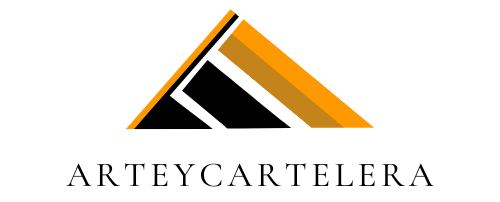How Can UK Educational Publishers Adapt to the Rise of Digital Textbooks?

As we continue to live in this digital age, the world of education is not being left behind. The traditional methods of learning are gradually being replaced by innovative digital learning practices. One area that has witnessed a significant transformation is the publishing industry, with UK educational publishers at the forefront. With the rise of digital textbooks, it’s high time that these publishers adapt their strategies and operations to keep up with the rapidly evolving market.
Embracing the Digital Revolution
As the future of education becomes increasingly digital, it’s essential for UK educational publishers to understand the significant role of digital content in learning today. The use of digital textbooks and other online educational materials have skyrocketed over the past few years, and the trend doesn’t seem to be slowing down.
A voir aussi : What Are the Best Practices for Reducing Cybersecurity Risks in UK Home Offices?
Digital textbooks offer a host of advantages over traditional printed books. They are easily accessible, easily updated, and can offer interactive content that engages students and enhances the learning experience. Furthermore, the digital format allows for greater accessibility for students with disabilities and flexibility for teachers to customize their teaching materials.
The challenge for publishers lies in creating digital materials that are not just replicas of printed books, but fully utilize the capabilities of digital technology to enhance learning. This includes incorporating multimedia content, interactive exercises and quizzes, and other digital learning tools.
Sujet a lire : What Strategies Can Optimize the UK Gig Economy Workforce Management?
Penetrating the Online Market
Familiarizing oneself with the digital publishing landscape is one thing, but breaking into the online market is a whole different challenge. UK educational publishers need to consider various factors in order to effectively penetrate the online market.
First, it’s crucial for publishers to understand the current trends in digital learning and the preferences of students and teachers. This includes considering the devices that students use for learning and the types of digital content that are most effective in engaging students.
Second, publishers need to establish partnerships with online platforms and educational technology companies. These partnerships can help publishers distribute their digital materials more effectively and reach a wider audience of students and teachers.
Finally, to be competitive in the online market, publishers must offer high-quality digital materials that meet the needs of today’s learners. This includes materials that are engaging, interactive, and tailored to the educational standards and curriculum of UK schools.
Adapting to the Needs of Students and Teachers
The key to successful digital publishing lies in understanding and addressing the needs of its end users – the students and teachers. Digital learning is not only about shifting from print to online. It’s about using technology to enhance the learning experience and meet the unique needs of each learner.
For students, digital textbooks should offer a user-friendly interface, engaging multimedia content, and interactive features that support active learning. They should also be accessible from any device and allow for offline access.
For teachers, digital textbooks need to offer features that support lesson planning, assessment, and grading. They should also provide teachers with useful insights into student performance and learning progress.
In essence, UK educational publishers need to adopt a learner-centered approach in their digital publishing efforts. This means creating educational materials that not only align with the curriculum but also cater to the learning styles and preferences of students.
Advancing Academic Success Through Technology
Adapting to the rise of digital textbooks does not mean abandoning the tried-and-tested traditional publishing methods. Rather, it’s about combining the strengths of print and digital to improve education and advance academic success.
Digital textbooks present an opportunity for UK educational publishers to offer a more accessible, flexible, and engaging learning experience. However, it’s important to remember that technology is merely a tool. The real impact comes from how it is used in teaching and learning.
Of course, not all students and teachers will immediately embrace digital textbooks. There will be a learning curve, and some may prefer the familiarity of print. But with careful planning, continuous innovation, and a commitment to serving the needs of learners, UK educational publishers can successfully adapt to the digital revolution and play a significant role in shaping the future of education.
Navigating the Future of Education
The rise of digital textbooks is just one aspect of the larger digital transformation happening in the education sector. As technology continues to evolve, so too will the ways in which students learn and teachers teach. This means that the role of educational publishers will also continue to evolve.
UK educational publishers need to stay abreast with the latest trends and advancements in educational technology. They need to be proactive in exploring innovative ways to deliver educational content and meet the changing needs of learners.
The future of education is digital. By embracing digital publishing, UK educational publishers are not only staying relevant in today’s digital age, but they are also contributing to the advancement of learning and the success of future generations.
Navigating the future of education may be challenging, but it also presents numerous opportunities for growth and innovation. As the saying goes, the only constant is change. And in the world of education, change means progress. So, let’s look forward to the future with optimism and embrace the exciting possibilities it brings.
Fostering Collaboration Between Educational Institutions and Publishers
As the higher education landscape continues to transform, university presses play a key role in the digital revolution. Institutions like Cambridge University and Oxford University have an opportunity to lead in this digital transition in the publishing industry.
Collaborating with educational publishers allows universities to influence the creation of educational content, ensuring it aligns with current curriculum needs and educational standards. Moreover, universities can help shape the creation of digital textbooks, learning resources, and teacher training materials that enhance the learning experience.
To make digital textbooks more appealing, publishers can incorporate innovative technologies such as augmented reality and virtual reality. These technologies not only enrich the content but also make it interactive, fostering a more engaging learning experience.
However, collaboration should not stop at universities. Educational publishers should extend their partnerships to other educational institutions – primary and secondary schools, vocational training centers, and even lifelong learning programs. By doing so, they can ensure that their digital content is diversified, inclusive, and caters to a wider audience.
In order to penetrate the publishing market deeply, educational publishers should be flexible and open to collaboration. They should actively seek partnerships not just within the educational sector, but also with tech companies that have the capability to design and develop digital platforms. This will allow them to share and distribute their content more effectively.
The Future of UK Educational Publishing
Looking ahead, the future of UK educational publishing is undoubtedly digital. The rise of digital textbooks and online learning platforms has already transformed the way we teach and learn. The task now for publishers is to keep up with this rapid pace of change, while ensuring that they continue to deliver high-quality, relevant educational resources.
In order to thrive in this ever-evolving landscape, UK educational publishers must embrace the digital revolution and view it not as a challenge, but as an opportunity for growth and innovation. They must continue to break down barriers in the publishing market, fostering stronger collaborations with universities, educational institutions, and tech companies.
Moreover, they must continue to put the needs of learners at the forefront of their decision-making process. Whether it’s developing interactive learning materials, providing teachers with effective training resources, or ensuring that their content meets educational standards, the learners’ needs should always be the top priority.
In conclusion, the rise of digital textbooks marks a significant shift in the world of educational publishing. It requires a willingness to adapt, innovate, and collaborate. By doing so, UK educational publishers can continue to play a key role in education, shaping the learning experience for students and supporting teachers in their mission to deliver quality education. Remember, technology is just a tool. The true power lies in how we use it to enhance learning and teaching.
Navigating the future of education may be challenging, but it also presents numerous opportunities. Let’s welcome these changes with optimism and eagerness to learn and adapt. After all, in the world of education, change is synonymous with progress.
